Clifford Garstang's Blog, page 25
June 1, 2021
2021 Reading — May

With my own book coming out in May, I didn’t get a lot of other reading done, or at least not as much as I intended. But while we’re on the subject, my new novel, Oliver’s Travels, was published on May 18 by Regal House Publishing. The novel is about a young man who is searching for the truth about something that happened to him as a young boy. His search takes him on a Gulliver-like journey as he makes discoveries about himself and his family. It is in many ways a Hero’s Journey. As Liam Callanan said of the book, “It’s a twisty metafictional and metaphysical tour of the world–and the author’s mind–that examines not only how humans make stories, but how they make us. Fascinating and endlessly surprising.”
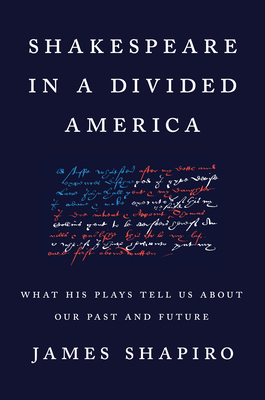
Shakespeare in a Divided America by James Shapiro is a terrific book. It is framed by a discussion of a 2017 Public Theater production of Julius Caesar that seemed to portray Donald Trump as the ruler becoming dictator who is assassinated. The production is referred to in the introduction and the protests that arose on the far right are discussed in the conclusion. In between are stories about Shakespeare in other tumultuous times in America, including a long and fascinating discussion of Abraham Lincoln’s fondness for Shakespeare and the very Shakespearean thinking of his assassin, John Wilkes Booth, who saw himself as a Brutus ridding the country of a tyrant. This was my book club’s discussion for May and I’m very glad I read it.
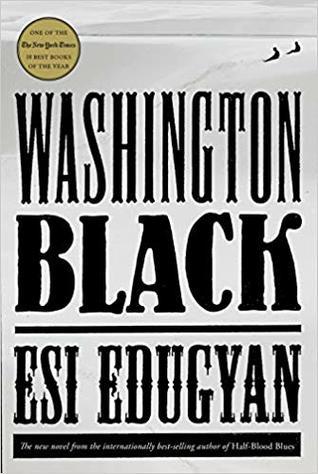
Washington Black by Esi Edogyan is not promising at first. In the past decade, I’ve read several slave narratives, and there’s a certain sameness to them . . . until suddenly they’re not. Underground Railroad was like that, and so is this novel. The main character, George Washington Black, is a young slave on a plantation in Barbados in 1830 when the master dies. The new master arrives, along with his younger brother. The brother takes Wash on as a helper/apprentice and treats him well so that the boy thrives and learns. He never forgets his origins, though, no matter where their adventures take them. For the next couple of hundred pages, the story is gripping and unusual, which is great. But then, I’m afraid, the story falls apart at the end. Beautiful writing, if a little overwrought in places, and a fine collection of interesting characters.
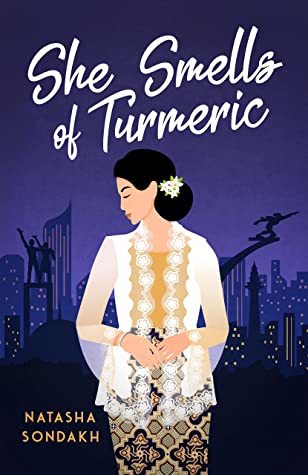
She Smells of Turmeric by Natasha Sondakh is an entertaining short novel by a college student I am mentoring. I am clearly not the intended audience, but I enjoyed it just the same. The main character, CeCe, is the daughter of an Indonesian couple living in LA. When her father dies suddenly, CeCe is devastated. So when, after her graduation from USC, her father’s parents ask her to move to Jakarta so they can get to know her better, she does. She is, somewhat improbably, able to arrange for a decent job in a start-up company, and off she goes on her own, only to discover that her grandparents are incredibly wealthy. She makes some friends through her co-workers and keeps her identity a secret from them. In the process, she learns some valuable lessons about herself and her family. I enjoyed the book in large part because I used to go to Jakarta frequently for work, and CeCe sees a lot of the same things a foreign visitor would. Also, the book is a little bit like Crazy Rich Asians, but not quite as over the top or melodramatic.
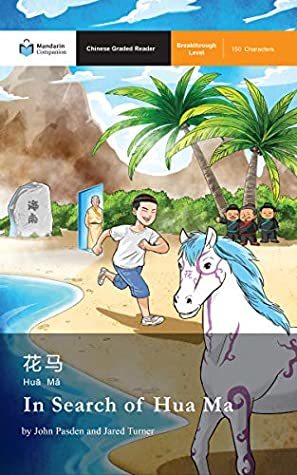
In Search of Hua Ma by John Pasden is a really short book, but in my defense, it’s in Chinese! It’s part of a series of graded readers for Chinese learners, and it’s actually below my grade level, but I wanted to check it out before I purchase books that are at a higher level in the series. It reminds me a little of The Little Prince. Little Nan Nan, who lives in the province of Shan Xi in China, goes out looking for some flowers for his mother’s birthday. He meets an old woman who tells him he should be looking for Hua Ma (which means Flower Horse) and when he does, he finds himself transported to Hai Nan Island (off the southern coast of China. Using only 150 characters, it’s very easy to read, so now I need to look for the more challenging offerings.
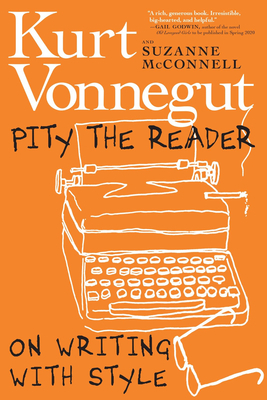
Pity the Reader by Kurt Vonnegut and Suzanne McConnell is a collection of Vonnegut’s writing advice curated and annotated by McConnell, along with excerpts from Vonnegut’s work and McConnell’s own observations. It’s an impressive achievement, really, and I think it does contribute to our understanding of who Vonnegut was as a writer. McConnell, whom I met several years ago because she edited a story of mine for the Bellevue Literary Review, was a student of Vonnegut’s at the Iowa Writers’ Workshop and stayed in touch with him after that. Much of the advice is of the familiar sort, but with a Vonnegut twist that one might expect, given that his work was unique. The book includes comments and quotations from some of Vonnegut’s other students, colleagues, and friends.
May 28, 2021
I’ve Got Questions for Alice Kaltman
Editor’s Note: This exchange is part of a series of brief interviews with emerging writers of recent or forthcoming books. If you enjoyed it, please visit other interviews in the I’ve Got Questions feature.
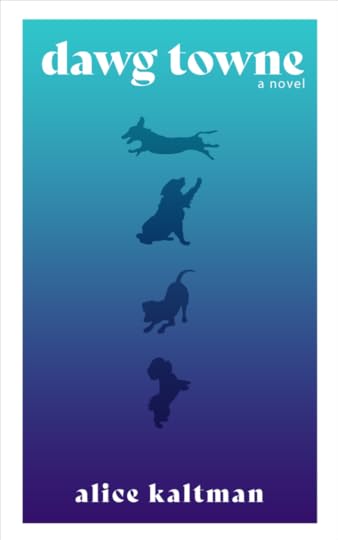 Dawg Towne by Alice KaltmanWhat’s the title of your book? Fiction? Nonfiction? Poetry? Who is the publisher and what’s the publication date?
Dawg Towne by Alice KaltmanWhat’s the title of your book? Fiction? Nonfiction? Poetry? Who is the publisher and what’s the publication date?The title of my book is Dawg Towne. It is a work of fiction, published by the marvelous folks at word west press (and yes, no caps), and will be launched like a frisky puppy into the world on June 1, 2021.
In a couple of sentences, what’s the book about?Dawg Towne is about six people, ranging in age from thirteen to eighty, who live in a generic suburb (Towne). Five of these people have lost their dogs. The sixth person, a twenty-something weirdo named Nell, has gotten it in her head that she’s a dog savior, and it is she who has taken the pups, along with many others, swiping them from backyards, backseats, and bistros. That’s what’s “happening” in Dawg Towne, but really this is a book about love, loss, identity, truth, lies and loyalty. You know, the light stuff.
What’s the book’s genre (for fiction and nonfiction) or primary style (for poetry)?It feels pretentious to say this, but I guess you’d call Dawg Towne literary fiction?
What’s the nicest thing anyone has said about the book so far?“There’s something almost mystical in the way it pulls you along, and is able to lock into focus at just the right moment to leave a specific, unforgettable detail in the reader’s mind. It’s a miraculous way to build a story. And it is perfection when everything swings into alignment.”
What book or books is yours comparable to or a cross between? [Is your book like Moby Dick or maybe it’s more like Frankenstein meets Peter Pan?]I’d love to think of it as a cross between Francine Prose’s Mister Monkey and Sigrid Nunez’s The Friend. The former for the structure and the humor, the latter for the emotional content and, of course, the dog.
Why this book? Why now?I’d found that when I started writing short fiction in 2013 I’d almost always end up with dogs in my stories. They kept popping up everywhere; uninvited, unannounced, the way dogs are wont to do. Dawg Towne grew out of one short story in particular, “Gifted and Talented”, about Nell and her misguided attempts at puppy protection. After that story was published in Hobart, I got it into my head that the people whose dogs Nell had snatched might have stories of their own. And thus this novel was born.
Why now? Dawg Towne has its darker sides. But while it isn’t all roses and sunshine, my book is mostly fun to read and might warm a few hearts. Seems like something we can all use in the now. I guess another why now is with the onslaught of COVID era dog adoptions; there might be more readers drawn to a book that on the surface is about dogs, but underneath is about the readers themselves. Not that this would ever have occurred to me when I first started Dawg Towne nearly three years ago.
Other than writing this book, what’s the best job you’ve ever had?Working as a dancer for a bunch of super talented choreographers from the 1980s through the early 2000s. I miss those days, daily.
What do you want readers to take away from the book?A sense of joy, a whiff of possibility, an acceptance of foibles?
What food and/or music do you associate with the book?You’d think as a dancer I’d associate music with my writing. But nope. I can’t listen to anything while I write, or read, for that matter. I get too wiggly, distracted by melody, rhythms, all the feels. I start dancing in my seat. As for food, I’d say: grilled cheese sandwiches. You’ll have to read the book to the end to understand why.
What book(s) are you reading currently?At the moment, I’m not reading anything with my eyes, but I am listening to the audio recording of The Golden Bowl by Henry James, narrated by the phenomenal Juliet Stevenson. She almost makes his dense prose understandable. Nothing like James to make someone (like me) feel like a big dummy. But here’s a list of books I recently read, with my eyes, that deserve all the kudos in the universe:
Little Threats, by Emily Schultz
Unseen City, by Amy Shearn
When It’s Not Called Making Love, by Karen Jones
The Loop, by Dan Sanders
Three Squares a Day with Occasional Torture, by Julie Innis
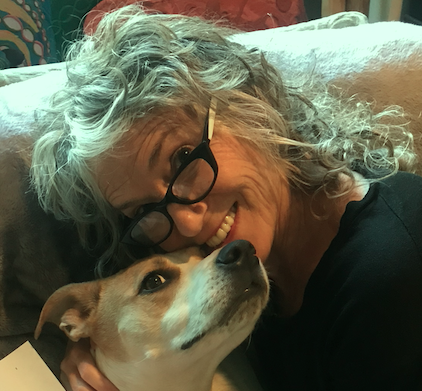 Alice Kaltman
Alice KaltmanLearn more about Alice at her website.
Follow Alice on Facebook, Instagram, Twitter, and Goodreads.
Buy the book from word west press, Bookshop.org, or Amazon.
May 24, 2021
I’ve Got Questions for David Ebenbach
Editor’s Note: This exchange is part of a series of brief interviews with emerging writers of recent or forthcoming books. If you enjoyed it, please visit other interviews in the I’ve Got Questions feature.
 How to Mars by David EbenbachWhat’s the title of your book? Fiction? Nonfiction? Poetry? Who is the publisher and what’s the publication date?
How to Mars by David EbenbachWhat’s the title of your book? Fiction? Nonfiction? Poetry? Who is the publisher and what’s the publication date?The novel is called How to Mars—my first venture into science fiction—and Tachyon Publications is publishing the book on May 25th, 2021!
In a couple of sentences, what’s the book about?Well, on one level it’s about six people who for various personal reasons agree to go on a dubious one-way mission to the red planet, all the while being filmed for a reality TV show that’s funding the mission, which is run by an eccentric organization called Destination Mars! On the planet, they end up having to cope with all sorts of issues: the first Martian pregnancy, the first signs of indigenous life on Mars (which may not be totally friendly), and an engineer with anger issues who seems to be losing it. So that’s on one level; on another, How to Mars is really about what it means to be human on any planet (including Earth), trying to figure out how we should best live our complicated lives.
What’s the book’s genre (for fiction and nonfiction) or primary style (for poetry)?The big genre is science fiction, but I think it can best be described as a combination of speculative fiction, literary fiction, and comedic fiction.
What’s the nicest thing anyone has said about the book so far?My wife says “It’s the best book ever, and it should be made into a movie,” but she may not be a perfectly objective reader, so instead I’ll quote Kirkus Reviews: “Six Marsonauts must survive on the red planet after their reality TV show is canceled in this delightfully unconventional novel….A poignant examination of what it means to be human.”
What book or books is yours comparable to or a cross between? [Is your book like Moby Dick or maybe it’s more like Frankenstein meets Peter Pan?]Hm. Maybe a combo of Ray Bradbury’s Martian Chronicles and Charles Yu’s How to Live Safely in a Science-Fictional Universe?
Why this book? Why now?The inspiration was the recent Mars One Project, which actually did claim they were going to send a group of people to Mars, and there were all sorts of strange things about their plan. For one thing, there was no possibility of ever coming home again; for another, it was going to be funded by a reality TV show; and for yet another the Marsonauts were not going to be allowed to have sex with each other once they reached Mars. And yet apparently a lot of people applied! So I found that fascinating, and that got me started. As I got deeper in, however, I realized what I was really writing about was us here on Earth, where we all struggle with purpose and getting along with one another and a lot more. (These struggles seem more intense than ever lately.) And yet, as urgent as these questions are, the guidance we get around these issues is spotty, questionable, contradictory. I wrote this book to help me figure out how we’re supposed to live our lives, whatever planet we’re on.
Other than writing this book, what’s the best job you’ve ever had?I love teaching, which is what I do now. Love it. Though my first job—at the Philadelphia Zoo, when I was a teenager—was pretty good, too. Learning how to get an opossum out of a cage without losing a finger—that’s a life skill.
What do you want readers to take away from the book?I hope they leave the book with a greater feeling of tenderness toward themselves and others, and a sense of how to face their demons with wisdom, honesty, and hope.
What food and/or music do you associate with the book?Given that this takes place in outer space, I had to think a lot about the food. Logistically, I mean. And the thing I kept thinking about was that freeze-dried ice cream that they used to give to astronauts and that you can buy for yourself when you visit the Smithsonian Air and Space Museum in DC. Not as good as regular ice cream, but appealingly weird. My Marsonauts have a larger range of freeze-dried options, though, including Reuben sandwiches. As for music, Elton John’s “Rocket Man” (which was inspired by Ray Bradbury’s short story “The Rocket Man”) is at the top of my list, because of the line “Mars ain’t the kind of place to raise your kids.” You’ll have to read How to Mars to see if he’s right or wrong about that.
What book(s) are you reading currently?I’ve been devouring a lot of utopian literature—Thomas More’s Utopia, Samuel Butler’s Erewhon, and Charlotte Perkins Gilman’s Herland, plus more recent explorations of utopian ideas by Octavia Butler (Parable of the Sower) and Elan Mastai (All Our Wrong Todays). I love thinking about it: what would the perfect society be like?
 David Ebenbach
David EbenbachLearn more about David on his website.
Follow him on Facebook, Twitter, and Instagram.
Buy the book from Tachyon Publications, Bookshop.org, or Amazon.
May 5, 2021
I’ve Got Questions for Jeffery Hess
Editor’s Note: This exchange is part of a series of brief interviews with emerging writers of recent or forthcoming books. If you enjoyed it, please visit other interviews in the I’ve Got Questions feature.
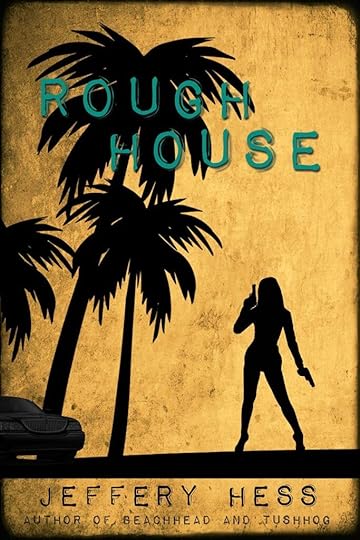 Rough House by Jeffery HessWhat’s the title of your book? Fiction? Nonfiction? Poetry? Who is the publisher and what’s the publication date?
Rough House by Jeffery HessWhat’s the title of your book? Fiction? Nonfiction? Poetry? Who is the publisher and what’s the publication date?Roughhouse (novel) published by Down & Out Books, forthcoming, May 10, 2021
In a couple of sentences, what’s the book about?If Scotland Ross doesn’t get $100,000 fast, his wife will die. His mission forces him into a storm of violence and pain with strong women and treacherous men gusting in all directions—without him, the women would be doomed; without them, he would be.
What’s the book’s genre (for fiction and nonfiction) or primary style (for poetry)?Roughhouse, like its predecessors Beachhead and Tushhog, is broadly categorized as mystery/suspense, but the more focused category is crime fiction, noir if you want to get particular. Florida noir, at that. (I use the term “noir” in homage to the literary greats that have come before me and by way of conveying that some dark stuff happens, and the main character is always a willing participant in his own doom.)
What’s the nicest thing anyone has said about the book so far?It’s a five-way tie:
“Edgy, rich and excessively smart… constantly entertaining and, even better, always artful.” – Fred G. Leebron, author of Six Figures, Out West, and Welcome to Christiania
“Firmly sets Hess up with the masters of Florida rough-and-tumble crime fiction.” – Steph Post, author of Miraculum, Lightwood, Walk in the Fire, Holding Smoke
“Tense, gritty, emotional… like the 80s itself.” – James R. Duncan, author of Blood Republic
“What a wild ride! This book is noir through and through yet has this emotional beating heart.” – Chris Rhatigan, author of Squeeze and Race to the Bottom
“This book reminded me of early Elmore Leonard books.” – Jonathan Brown, author of the Lou Crasher Mysteries
What book or books is yours comparable to or a cross between? [Is your book like Moby Dick or maybe it’s more like Frankenstein meets Peter Pan?]I’ve received comparisons to John D. MacDonald’s Travis McGee books, as well as to Robert Stone, Daniel Woodrell, Elmore Leonard, and even Carl Hiassen.
Why this book? Why now?Roughhouse is the third in my Scotland Ross trilogy, which came about purely by accident—the trilogy, I mean. The whole thing began as a short story. Next thing you know, I’m writing it as a novel. However, there was so much more than I could get to, so I knew there’d be a sequel. A publisher encouraged me to consider a trilogy. I had ideas for a third book, but in the early days, I couldn’t imagine getting there. Ten years later, I got there. Though I never set out to write three books involving the same protagonist, I am grateful that I was able to tell his full story.
Other than writing this book, what’s the best job you’ve ever had?For the past fourteen years, I’ve been fortunate enough to lead a writing workshop for military veterans, but I don’t consider that a job. So in answer to the question: a close second is a side-job I had in my first two years of college. While I waited tables and bartended at night, in the early morning hours one of my best friends and I would deliver cabinets to construction sites of new houses and condos. We’d start at the cabinet shop, load up our box truck and drive all over town to deliver somebody’s kitchen and bathroom cabinets. We had to be early, before the installers showed up at one site or another. Often we did two or three truckloads. I was constantly tired from a severe lack of sleep and often wrung out from the Southwest Florida heat, but the work was like a workout to us. We drove with hair metal music blaring on K-Rock. That and the laughs me and my buddy had made the exertion (even during tremendous hangovers) enjoyable enough to look back with a smile.
What do you want readers to take away from the book?As with all my books, I hope readers come away with a realization that character and plot can coexist—that marketing categories don’t have to limit one’s reading choices or pleasure.
What food and/or music do you associate with the book?Since the trilogy spans 1980-1987 there is a variety from old Country & Western to Southern Rock to early hair metal. But mostly it is the old Country music I remember hearing in those early days at the bowling alley where the image of Scotland Ross comes from. Willie, Waylon, Hank Jr., Merle Haggard, Johnny Cash, for instance.
What book(s) are you reading currently?I read an article somewhere that stated it’s better for the brain to read nonfiction in the daytime and fiction at night. Therefore, I usually have two books going at the same time. I’m currently reading Out there Bad by Josh Stallings and Paying it Backward by Tony March.
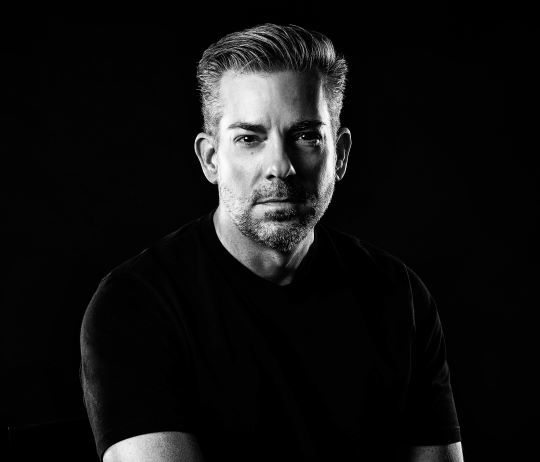 Jeffery Hess
Jeffery HessLearn more about Jeff at his website.
Follow him on Facebook, Instagram, and Twitter
Buy the book on Amazon.com
April 30, 2021
2021 Reading–April
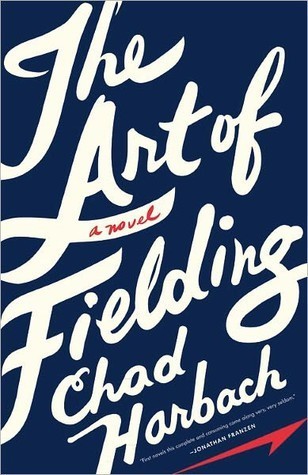 The Art of Fielding by Chad Harbach
The Art of Fielding by Chad HarbachThe Art of Fielding by Chad Harbach is an odd book with several point of view characters, although the focus seems to be on Henry, a fielding phenom who arrives as a “freshperson” at Westish College, a small school in Wisconsin that has some connection to Herman Melville. Henry is mentored by Mike Schwartz, a year ahead of him, a young man who has ambitions outside of sports but is having trouble realizing them. Henry seems destined for MLB. The college president is a factor also, because he has a crush on a male student and also because his troubled daughter arrives and begins dating Mike. Meanwhile, Henry is losing confidence in himself and begins to make errors on the field, killing his chances in the MLB draft. Although there are a lot of plot twists and turns here that I didn’t appreciate because they seemed implausible, I can’t deny that it’s a very engaging book, told with skill.
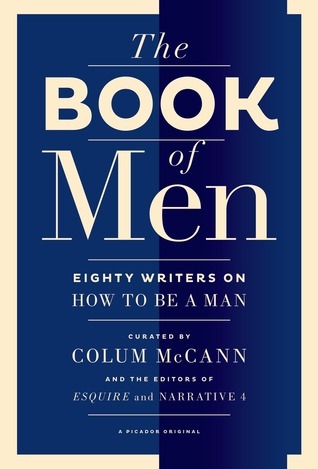 The Book of Men
The Book of MenThe Book of Men: Eighty Writers on How to Be a Man, curated by Colum McCann is a collection of 80 pieces, a mix of fiction and non-fiction, supposedly about being a man, which is what you might expect from Esquire Magazine, where McCann is (or was?) a contributing editor. I can’t imagine that I bought this book, but I did subscribe to Esquire for a while, so maybe I got it as a gift when I renewed? Anyway, there isn’t really much point to a book like this, where the pieces are really too short to have much of an impact and the views are so diverse. Still, some of it I enjoyed very much and a few of the pieces are by people I know in real life.
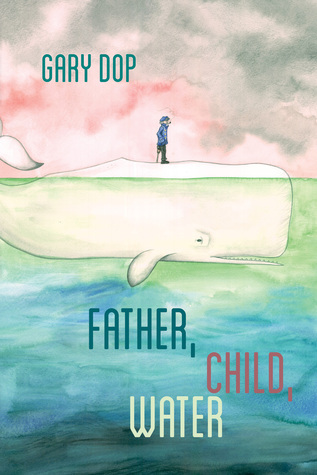 Father, Child, Water by Gary Dop
Father, Child, Water by Gary DopFather, Child, Water by Gary Dop is an eclectic collection of poems, many of which reflect the author’s slightly off-beat humor. The last 12 poems in the collection are all about or from the point of view of a man named Bill Bitner, who seems to be childlike, someone who hasn’t quite learned how the world works and doesn’t care. I worried that the poems were in some way making fun of a disabled person, but I’m inclined to think that the point is that the world isn’t welcoming to its Bill Bitners, and still they are here, among us.
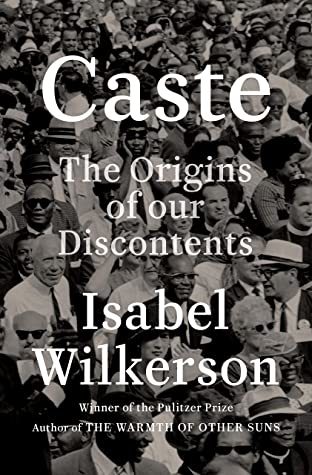 Caste by Isabel Wilkerson
Caste by Isabel WilkersonCaste: The Origins of Our Discontents by Isabel Wilkerson is a powerful book that equates the “caste” systems of India, Nazi Germany, and the United States. There are problems with the analogy, I think, but they don’t really affect the strength of her conclusion that African Americans have always been treated as the lowest of the low in this country, no matter how far they’ve risen above the class into which they or their ancestors were born. She herself is an accomplished journalist, and yet she feels dismissed constantly—at conferences, on airplanes, etc.—by white people, that is, people of the “dominant caste,” as she calls them. She recounts anecdote after anecdote to support her assertion (rather than hard data), but that doesn’t make her case any less compelling. She doesn’t offer a solution, but she does hint at one in the very last anecdote. A plumber came to her house and at first is brusque and dismissive. On a gamble, though, she makes a personal connection about their deceased mothers. That seems to turn the tide and from then on he goes out of his way to be helpful.
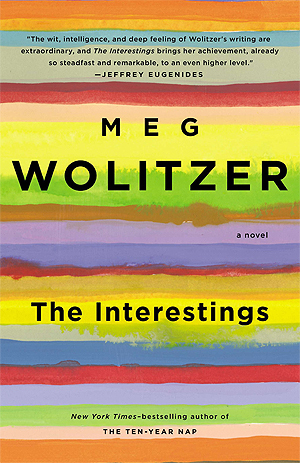 The Interestings by Meg Wolitzer
The Interestings by Meg WolitzerThe Interestings by Meg Wolitzer is one of those novels that traces the lives of a group of friends. In this case, they meet at a summer camp for the arts in Western Massachusetts, bond, and then continue their intertwined lives. The focus of the book appears to be on Jules, a girl who goes to the camp on scholarship and is befriended by a clique of wealthier kids who begin to call themselves The Interestings, and especially on her friendship with Ash Wolf, the beauty of the group. Time passes and we see various members of the group grow and change over the years, just as their relationships grow and change. While the book is readable, and I’m interested enough in the characters to want to know what becomes of them, the book doesn’t ultimately thrill me, because I’m never quite sure what the problem is. Okay, so Jules feels like an outsider at summer camp and that feeling never goes away, and everyone goes through rough patches in their lives, I can’t really point to a story that the book is telling.
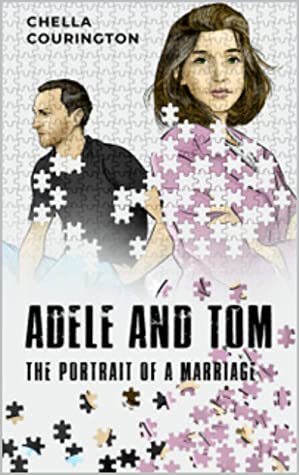 Adele and Tom by Chella Courington
Adele and Tom by Chella CouringtonAdele and Tom: The Portrait of a Marriage by Chella Courington is a novella in flash. The title pretty much says it all. Adele and Tom meet and marry. Their marriage has ups and downs, but they seem devoted to each other. The novella gives us a deeper look into Adele’s past than Tom’s, but the present is what concerns the book. Both Adele and Tom are writers, which provides for some tension between them and even some competition when they submit to the same venues.
April 19, 2021
Book Launch Event on Zoom!

Please join Clifford Garstang in conversation with Christina Chiu celebrating the publication of Cliff’s new novel, Oliver’s Travels.
May 18, 2021, 7:00 pm on Zoom.
Registration is required for the event hosted by The Book Dragon Bookshop of Staunton, Virginia.
Signed copies of the book are available for order and pick-up (on or after May 18) in Staunton from The Book Dragon at 102 W. Beverley Street, 540-712-7941. For buyers outside of Staunton, please support the store by ordering from The Book Dragon on Bookshop.org.
Register in advance for this meeting:
https://us02web.zoom.us/meeting/register/tZIscumhqTkrE9wBgfCeGng5L13VT3yeJSm3
After registering, you will receive a confirmation email containing information about joining the meeting.
 Clifford Garstang
Clifford GarstangClifford Garstang is the author of the novels Oliver’s Travels and The Shaman of Turtle Valley as well as three story collections: House of the Ancients and Other Stories, What the Zhang Boys Know, winner of the Library of Virginia Literary Award for Fiction, and In an Uncharted Country, winner of an Independent Publisher Gold Medal. He is also the editor of the acclaimed anthology series, Everywhere Stories: Short Fiction from a Small Planet. A former international lawyer, he lives in the Shenandoah Valley of Virginia.
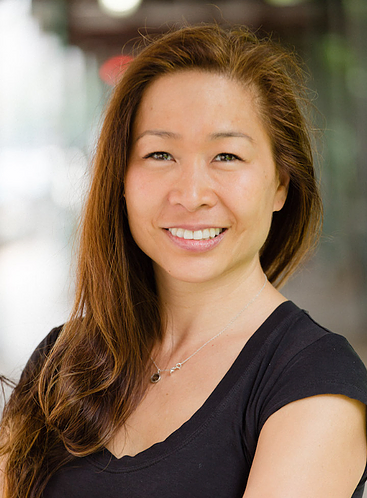 Christina Chiu
Christina ChiuChristina Chiu is the grand prize winner of the James Alan McPherson Award for her novel, Beauty. She is also the author of Troublemaker and Other Saints, published by G.P. Putnam’s Sons. Troublemaker was an alternate selection for BOMC and QPB, a nominee for a BOMC First Fiction Award, and winner of the Asian American Literary Award. Chiu curates and co-hosts the Pen Parentis Literary Salons in New York City. She received her MFA in writing from Columbia University.
About Oliver’s Travels: Ollie Tucker, a recent college graduate and student of philosophy, is obsessed with truth and the source of knowledge, questioning the validity of everything he hears from his parents, his girlfriend, and even the voices inside his head. In pursuit of the truth and life’s deeper meaning, he invents an alter ego, Oliver, who lives the adventurous and exotic existence Ollie cannot. But Ollie has another problem—a repressed memory of his uncle Scotty that threatens to derail his life, his relationships, and his sexuality. But the memory is a blur. And what he thinks he remembers, he knows is unreliable. The uncertainty is paralyzing. What is the truth? What has his subconscious fabricated? When he learns that his uncle, long-presumed dead, is in fact alive and well, Ollie realizes that to move on with his life and find peace, he must confront his uncle. With wry humor and finely wrought prose, Oliver’s Travels is a shimmering coming-of-age story that explores enduring questions: What do we know? How do we know it?
Praise for Oliver’s Travels
“In Oliver’s Travels, Clifford Garstang deftly explores the fragility of memory. Ollie, an aspiring writer, must navigate the mundane while, at the same time, imagining a life of fulfillment for his alter ego, Oliver. Garstang displays his gift for contemplation and characterization as Ollie moves undauntedly in search of answers to life’s questions and discovers, in this journey marked with wanderlust, how the past and the present will forever share porous boundaries.” -Jon Pineda, author of Let’s No One Get Hurt
“One man’s search for the truth about himself — a tour of his own head that winds up taking him on a tour of the world. A witty, humane meditation on the slippery slope of childhood memory.” -Jonathan Dee, finalist for the Pulitzer Prize, author of The Locals and The Privileges
“This is a novel with an edge and a heart, constantly riveting and always smart, not to mention funny! Its humor, in part, derives from the keen intelligence and the pitch-perfect nature of the sterling prose. A must read.” -Fred Leebron, author of Six Figures and Welcome to Christiania
“A twisty metafictional and metaphysical tour of the world – and the author’s mind – that examines not only how humans make stories, but how they make us. Fascinating and endlessly surprising.” -Liam Callanan, author of Paris by the Book and Listen & Other Stories
I’ve Got Questions for K.T. Sparks
Editor’s Note: This exchange is part of a series of brief interviews with emerging writers of recent or forthcoming books. If you enjoyed it, please visit other interviews in the I’ve Got Questions feature.
 Four Dead Horses by K.T. SparksWhat’s the title of your book? Fiction? Nonfiction? Poetry? Who is the publisher and what’s the publication date?
Four Dead Horses by K.T. SparksWhat’s the title of your book? Fiction? Nonfiction? Poetry? Who is the publisher and what’s the publication date?Four Dead Horses, fiction, Regal House Publishing, released on April 19, 2021
In a couple of sentences, what’s the book about?Four Dead Horses is about cowboy poetry and the equinophobic Midwestern pet mortician who loves it. All Martin Oliphant wants is to leave his small hometown of Pierre, Michigan and recite cowboy poetry at the annual Elko Cowboy Poetry Confluence, but at every turn his family and happenstance (but mostly his family) prevent him. Martin is 20 and vacationing with his family at Jimmy Sneedle’s Tennis and Dude Ranch when Beaufort Giles introduces him to cowboy poetry and his daughter, Ginger, a red-headed rodeo queen. Until that moment, Martin had been facing abandoning his studies to care for his mother during treatment for breast cancer (tennis elbow, she insists), while his father and brother shamelessly plan to desert them. Through his mother’s lingering illness and his father’s senility, through a career that takes him from the local newspaper to his own establishment as a pet mortician, cowboy poetry and Ginger are the twin stars that guide and sustain Martin.
What’s the book’s genre (for fiction and nonfiction) or primary style (for poetry)?It’s literary fiction, a black comedy varietal.
What’s the nicest thing anyone has said about the book so far?People have been so kind, it’s hard to choose. Dana Spiotta (author of Innocents and Others) called it “a wild, sharp-edged, wickedly funny debut novel,” which I do love, but I think the blurb that captures it best is from CJ Hauser (author of Family of Origin): “Sparks writes with ecstatic generosity of spirit, wicked humor, and doesn’t flinch as she stares down the sometimes-tragedy of everyday American living” – because that’s what I was going for.
What book or books is yours comparable to or a cross between?If Frank Capra and the Coen brothers collaborated on A Confederacy of Dunces and set it in the Upper Midwest, I think you’d get something like Four Dead Horses.
Why this book? Why now?I think I lucked out on the timing a little bit, with Four Dead Horses coming out right as the pandemic is starting to ease (STOP READING AND GO GET VACCINATED RIGHT NOW IF YOU HAVE NOT YET – C’MON PEOPLE WE’RE ALMOST THERE). In one way, the novel is about getting through the bad times by dreaming of the best times – and even if those dreams are completely unrealistic, finding out they can come true, even if not word-for-word true, even if, as the great David Bowie said, “just for one day.” There’s hope in that, along with not a little humor, and we could all use a bit of hope and humor to get us through the last of this slog.
Other than writing this book, what’s the best job you’ve ever had?Speechwriter and legislative director for (now retired) Senator Herb Kohl (D-WI).
What do you want readers to take away from the book?That people are complicated, that true love is inexplicable, that dreams can destroy you, that dreams can sustain you, that dreams can redeem you, that everyone is on some sort of hero’s journey that is oh-so tragic but also funny as hell.
What food and/or music do you associate with the book?
I got asked to do a playlist for the novel by the literature and music blog, largehearted boy (which you all should subscribe to if you don’t already—it’s so much fun), so I thought a lot about this. This is what I wrote there: “The wannabe hero of my novel Martin Oliphant, grows up in the upper Midwest in the seventies and early eighties–as I did–and thus the soundtrack of his life is the (now) classic (then “popular”) and hard rock of that era and the (even more) classic sounds of the late sixties-early seventies bands shared by older siblings and the cool stoners a couple of years ahead in school. He would have consumed the music from the transistor radio he got for his thirteenth birthday, off mix tapes recorded with a cassette player held next to the stereo, through speakers at roller and ice rinks that blasted it out in between warnings against crack-the whip, and in high school gyms at dances deejayed by the kid with the best Panasonic hi-fi speakers.”
What book(s) are you reading currently?Just finished The City We Became by N.K. Jemisin (loved it) and Mexican Gothic by Silvia Moreno-Garcia (loved it) and started Such a Fun Age by Kiley Reid (loving it).
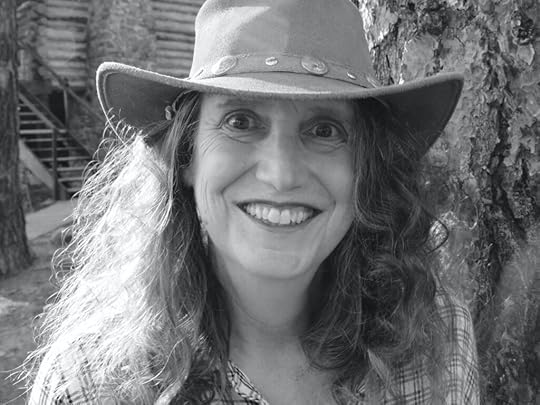 K.T. Sparks
K.T. SparksLearn more about KT at her website.
Follow her on Facebook, Twitter, Instagram, and Goodreads.
Buy the book from the publisher, Bookshop.org, Barnes & Noble, or Amazon.com.
April 12, 2021
I’ve Got Questions for Chella Courington
Editor’s Note: This exchange is part of a series of brief interviews with emerging writers of recent or forthcoming books. If you enjoyed it, please visit other interviews in the I’ve Got Questions feature.
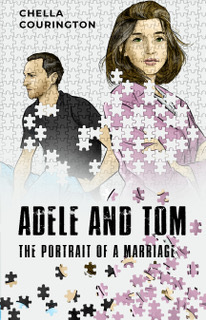 Adele and Tom: The Portrait of a Marriage by Chella CouringtonWhat’s the title of your book? Fiction? Nonfiction? Poetry? Who is the publisher and what’s the publication date?
Adele and Tom: The Portrait of a Marriage by Chella CouringtonWhat’s the title of your book? Fiction? Nonfiction? Poetry? Who is the publisher and what’s the publication date?Adele and Tom: The Portrait of a Marriage. Auto-fiction. Breaking Rules Publishing (February 1, 2020).
In a couple of sentences, what’s the book about?A life in flashes, the novella tells of a writing couple in Santa Barbara, California, struggling to keep their relationship together. While their love for each other is apparent, so are their difficulties.
What’s the book’s genre (for fiction and nonfiction) or primary style (for poetry)?Literary fiction. Auto-fiction.
What’s the nicest thing anyone has said about the book so far?“I adored this piece of writing which could be picked up and read over an extended time frame, or like I did in one sitting. No this story doesn’t take you away to a fantasy world where romance is clearly the stuff of fiction, but it is a reminder that life isn’t always easy; it’s hard and relationships need to be a balance of give and take to work.” Kirsti at Bedside Review
What book or books is yours comparable to or a cross between? [Is your book like Moby Dick or maybe it’s more like Frankenstein meets Peter Pan?]Evan S. Connell’s Mrs. Bridge (1959) is a life told in flashes. Ben Lerner’s Leaving the Atocha Station (2011) and Rachel Cusk’s Outline (2014) are books called auto-fiction where the authors take fictive freedom with the details of their own lives.
Why this book? Why now?In her essay “Modern Fiction” Virginia Woolf says that a novelist should look within and write about the complexities and subtleties of being a human being. Indeed, an engaging novel or shorter novella can focus on the often unrecorded, smaller events like dinner at home or discussing a novel. In light of my respect and love for Woolf’s novels Mrs. Dalloway and To the Lighthouse, I began to think my day-to-day existence with my husband deserved closer examination. I decided to tell a story of two married writers navigating their journey together, loosely based on our lives yet with much narrative license.
Other than writing this book, what’s the best job you’ve ever had?Teaching literature and writing at a range of institutions from Illinois State University and Huntingdon College to Santa Barbara City College and the South Carolina Maximum Security Prison for Men.
What do you want readers to take away from the book?There are several things I’d like readers to take away. First, I hope the novella resonates in such a way that they think about what’s been said after the last page and want to reread sections, if not the entire work. The novella raises the questions of purpose, identity, loss and love that continue to touch us deeply as we grow older. Second, I hope the everyday details are relatable. Yes, we all ponder the big issues; but, we also attempt to enjoy what we experience in the moment. Whether making a pizza or visiting a pet store, we take pleasure in being alive. Ideally, I’d like the language as well as the flashes of a relationship to transport the readers. Yet above all, I want them to find delight in Adele and Tom.
What food and/or music do you associate with the book?I associate pizza, fish, and avocados with Adele and Tom and hear Joni Mitchell’s Blue and Neil Young’s Harvest Moon in the background.
What book(s) are you reading currently?Having just finished Kate Zambreno’s Screen Tests, I’m reading her O Fallen Angel along with Lucia Berlin’s A Manual for Cleaning Women and Clarice Lispector’s A Breath of Life.
 Chella Courington
Chella CouringtonLearn more about Chella at her website.
Follow her on Twitter, Instagram, and YouTube.
Buy the book from the publisher (Breaking Rules Publishing), Bookshop.org, or Amazon.com.
April 7, 2021
I’ve Got Questions for Lisa Bordetsky-Williams
Editor’s Note: This exchange is part of a series of brief interviews with emerging writers of recent or forthcoming books. If you enjoyed it, please visit other interviews in the I’ve Got Questions feature.
 Forget Russia by L. Bordetsky-WilliamsWhat’s the title of your book? Fiction? Nonfiction? Poetry? Who is the publisher and what’s the publication date?
Forget Russia by L. Bordetsky-WilliamsWhat’s the title of your book? Fiction? Nonfiction? Poetry? Who is the publisher and what’s the publication date?Forget Russia was published by Tailwinds Press, December 2020. It is fiction, but some of my poetry actually begins each chapter.
In a couple of sentences, what’s the book about?Forget Russia tells the story of three generations of Russian Jews, journeying back and forth from America to Russia, during the course of the twentieth century. From before the 1917 Revolution to Brezhnev’s Soviet Union, this is a tale of unlikely heroes and the loss of innocence. A significant portion of the novel focuses on an American Russian-Jewish family that returns to Leningrad in 1931, in a type of reverse migration, to build the Bolshevik Revolution. Forget Russia is a story of revolution, betrayal, murder, and love.
What’s the book’s genre (for fiction and nonfiction) or primary style (for poetry)?Historical fiction
What’s the nicest thing anyone has said about the book so far?Kirkus Reviews writes about me, “She is an experienced writer, and that shows in the craft and passion behind this story.” The Kirkus Review goes on to say that Forget Russia “is a strong, stirring tale about a Russian family’s travails.” Forget Russia has also been selected as an Editor’s Choice Book for the May 2021 issue of Historical Novels Review.
What book or books is yours comparable to or a cross between? [Is your book like Moby Dick or maybe it’s more like Frankenstein meets Peter Pan?]I’d like to think of Forget Russia as Doctor Zhivago by Boris Pasternak meets The Woman Warrior by Maxine Hong Kingston.
Why this book? Why now?Given all of the anti-immigrant and anti-refugee rhetoric flooding the country and the world, the book is now more relevant than ever. Forget Russia also chronicles the devastating effects of a hate crime across the subsequent generations of women, in particular. It looks at inherited violence and trauma. Sadly, we are seeing a frightening rise in hate crimes in this country, and we need books that in their essence speak of the long lasting and devastating effects of these crimes.
Other than writing this book, what’s the best job you’ve ever had?I have been working as a college professor for many years, and I do love teaching. I also loved the job I had working in a supermarket deli slicing up the meats when I was in high school.
What do you want readers to take away from the book?In every family there is an unlikely hero who may have saved the family through her quiet courage. Oftentimes she remains unrecognized and unacknowledged. I’d like readers to look at their families for an ancestor who may have saved them all.
What food and/or music do you associate with the book?Ever since my student days in Moscow when I lived there for four months in 1980, I fell in love with the taste of beets. I know that sounds strange, but it’s true. The smells and tastes of a slightly sweet bread is another taste I associate with Russia. I have never actually found that precise taste again. In terms of music, I think of a plaintive folk song that speaks of wandering and searching over many years for a home.
What book(s) are you reading currently?I’m currently reading Caste by Isabel Wilkerson. I’m also rereading Man’s Search for Meaning by Viktor Frankl and Virginia Woolf’s To the Lighthouse.
 L. Bordetsky-Williams
L. Bordetsky-WilliamsLearn more about Lisa on her website.
Check out the trailer for the book.
Follow her on Facebook, Twitter, and Instagram.
Buy the book from Tailwinds Press (the publisher), Bookshop.org, Barnes & Noble, or Amazon.com.
April 2, 2021
I’ve Got Questions for Terri McCord
Editor’s Note: This exchange is part of a series of brief interviews with emerging writers of recent or forthcoming books. If you enjoyed it, please visit other interviews in the I’ve Got Questions feature.
 The Beauts by Terri McCordWhat’s the title of your book? Fiction? Nonfiction? Poetry? Who is the publisher and what’s the publication date?
The Beauts by Terri McCordWhat’s the title of your book? Fiction? Nonfiction? Poetry? Who is the publisher and what’s the publication date?The Beauts; poetry – Finishing Line Press, 12/2020
In a couple of sentences, what’s the book about?Much of the poetry is imagistic, several poems are ekphrastic, and some poems center on animals and science. The common bond is the act of seeing, trying to truly see.
What’s the book’s genre (for fiction and nonfiction) or primary style (for poetry)?Again, very metaphorical or imagistic, frequently employing the natural world, and looking to describe in unusual ways.
What’s the nicest thing anyone has said about the book so far?That the poems have remarkable imagery, visual imagination.
What book or books is yours comparable to or a cross between? [Is your book like Moby Dick or maybe it’s more like Frankenstein meets Peter Pan?]Louise Glück, Jorie Graham perhaps in a small way. I like to think of the poems as interludes wandering through museums, an artist studio, a planetarium, a church, natural settings and taking note of what makes up those scenes. Imagining the under-stories, historical, scientific, inter-disciplinary.
Why this book? Why now?This book should have come out two years ago, but I delayed it until it really felt like it had a will of its own and was insistent. I had lived with this particular grouping of poems for a while, and the title The Beauts finally came to me because the book really is about not only beauty in terms of objects or scenery, but also the patterns and story. Each poem had inspired me to write it, and I thought they should be shared and offered as a grouping.
Other than writing this book, what’s the best job you’ve ever had?Anytime I have actually genuinely connected with or understood another human being. Communication. Perhaps teaching. Demonstrating. Writing. Knowing that other person is going “yes, I see.”
What do you want readers to take away from the book?Beauty. In the everyday, in a hidden corner. To take joy in language and the lovely way the imagination can work.
What food and/or music do you associate with the book?Pudding and light jazz.
What book(s) are you reading currently?How to Disappear: Notes on Invisibility in a Time of Transparency by Akiko Busch
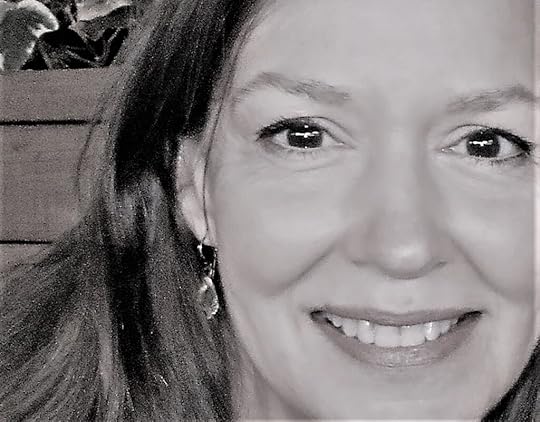 Terri McCord
Terri McCordLearn more about Terri on her Poets & Writers page.
Follow her on Facebook.
Buy the book from Finishing Line Press or Amazon.com



